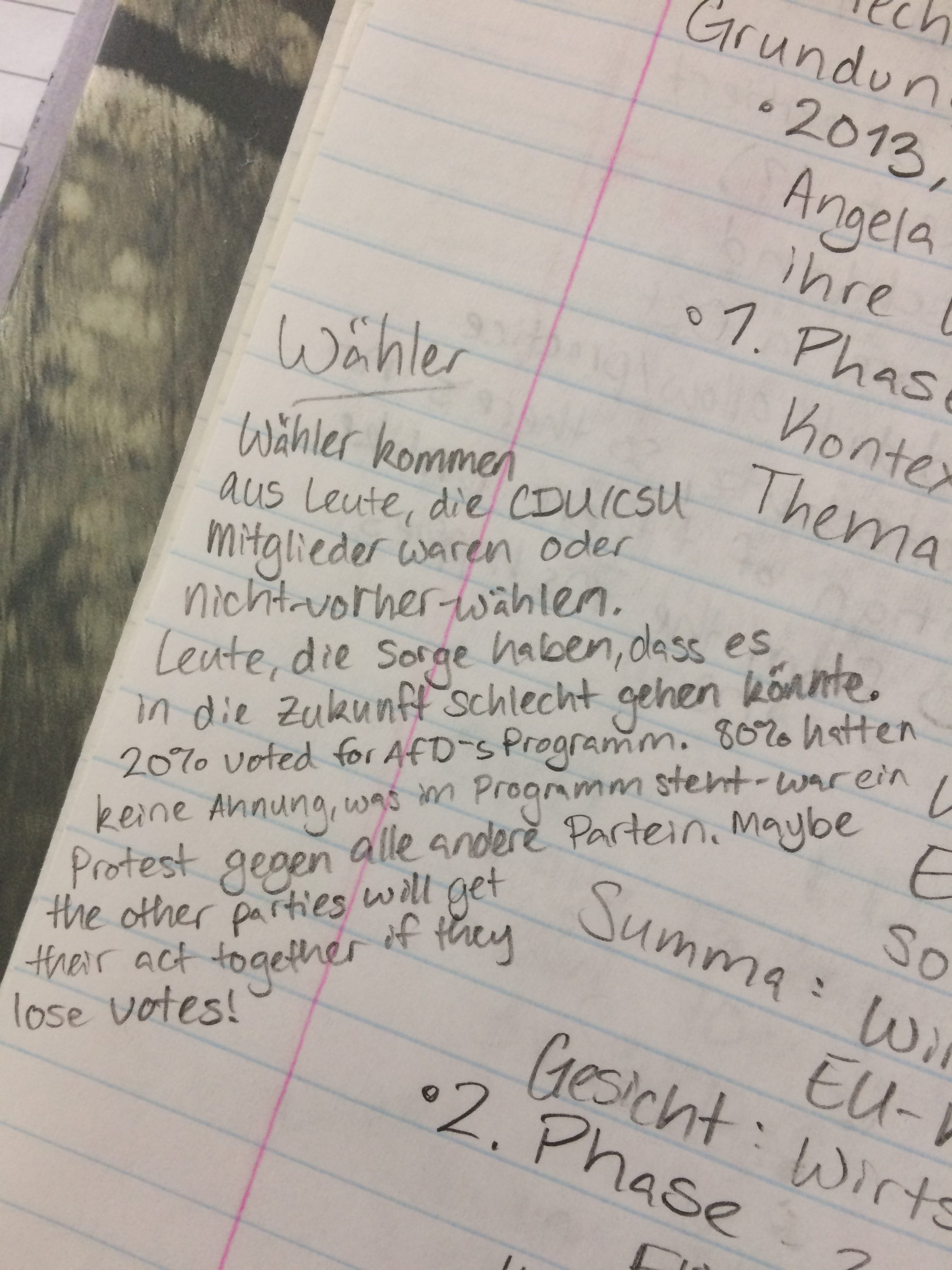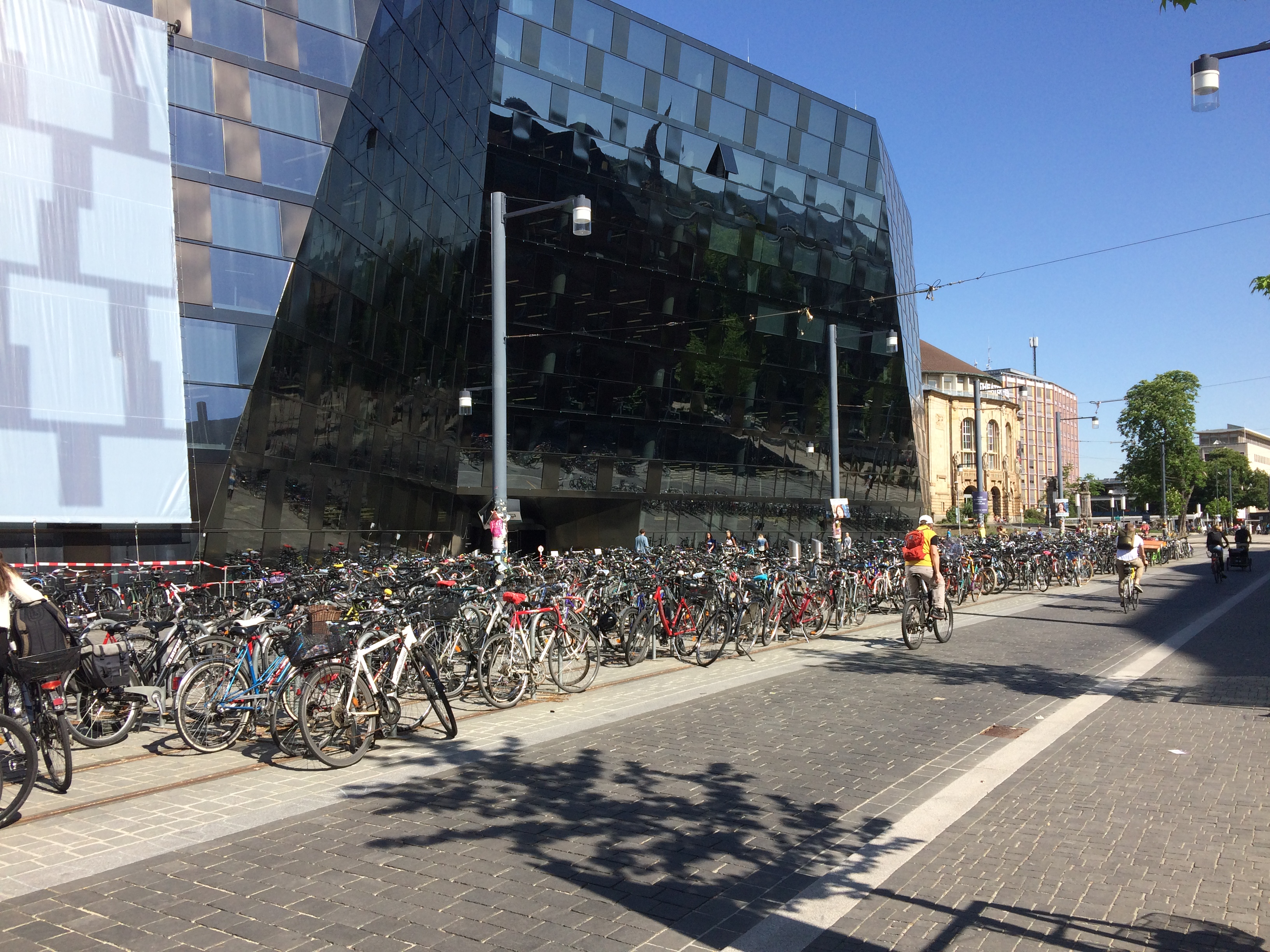A big part of studying abroad for me is that it will allow me to get a major in German, because any class in which the language of instruction is German gets counted as a German class. That’s why I chose to come to Germany instead of anywhere else in the world, and that’s why all of my classes are taught in German!
IES Freiburg (and globally) offers programs for language students and people who only know English, and the staff is completely fluent in English. When they talk to us in the Language and Area Studies program, though, they only use German, and we’re encouraged to try to use German among ourselves as well, which is why the rest of this post will be entirely auf Deutsch. Just kidding!
Admittedly, it can be hard to remain “immersed” in the language- when I’m with the other American students, it’s so easy to just slip back into English, and when I’m texting or calling with people back home, I have to only use English. That’s one of the reasons why I appreciate having a German grammar class four hours per week, doing all of my homework in German, and hearing all of my lectures in German. My notes often end up being a mixture of Deutsch and English, which is known affectionately here as Denglisch. ‘Franken-sentences” of mismatched languages abound.

German classes in general are structured differently from American classes. There’s less homework, and instead our grades are based primarily on 1 presentation, 1 research paper, a midterm exam, and a final exam. The concept of “multiple choice” tests hasn’t made it across the pond, and Germans seem skeptical and bemused by the idea. All exams are short-essay style. Thankfully, we’re allowed to use translation dictionaries to help us during exams, and the professors don’t dock points if we have to use the occasional English word.
My classes here are my language & culture class, German economics, German 21st century politics, and the history of the German state. It’s very interesting to get the European and German perspective on things that I’ve only ever heard from the American perspective. One would think that something like economics would be universal, but one would be wrong- the German have developed what they call “Ordo-Liberalism”, whereas Americans focus mostly on classical & neo-liberalism and Keynesian economics. I’ve also come to understand the roots of the first and second World Wars better than I ever have before, because Germans are much more concerned with questions like “why was Germany assigned all of the blame for WWI? Why did the Wiemar Republic fail so quickly?” The German perspective is helping me to see and understand the world more clearly, which is one of the biggest advantages of studying abroad.

While all of my classes are through IES, I could have chosen to participate in a course at the Albert-Ludwigs-Universität Freiburg (Uni-Freiburg for short) or at the Pädagogische Hochschule (PH). Many of the other students are doing one class at the university and the rest through IES. The university classes end a month later than the IES classes, which means that people taking university classes get to stay in Germany a month longer. Since I’m doing an internship, though, I get to stay late regardless, so I didn’t feel the need to take a university class (and it was a bit intimidating!)

The library is also a different experience. Before going in to where the books are, you have to lock all of your bags and coats in lockers. Anything that you want to bring in has to be carried in a shopping bag, and you can only bring water in clear containers. It’s much stricter than Van Wylen! On the ground floor is also a cafe in case you get hungry while studying, and you can reserve your study space using a little placard that displays what time you left. If you’ve been gone for more than an hour, though, people are free to take over your spot.
Students in Germany also tend to be older than American students. Many of the German students whom I’ve met are in their late 20s or early 30s. There’s not so much the “traditional” student who goes to college for a neat and tidy four years right after high school. It seems to be fairly common to wait a few years before entering the university, and also the idea of a very rigid 4-year plan isn’t as common here.

